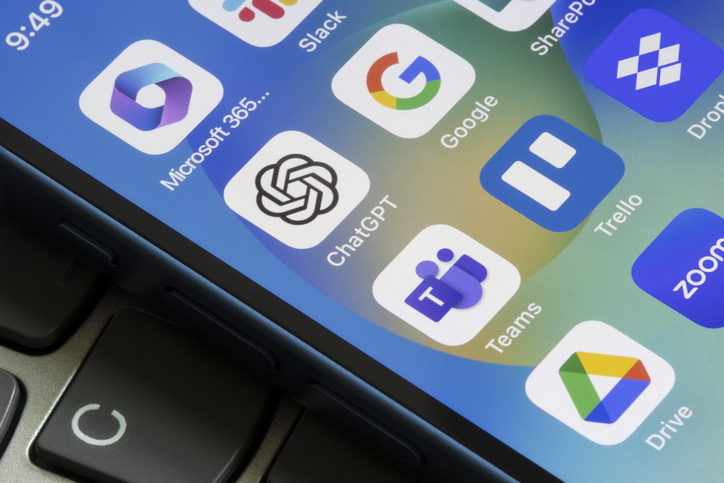Tech CEOs are making ambitious claims about AI’s coding capabilities. In March, Anthropic CEO Dario Amodei said “we’ll be there in three to six months — where AI is writing 90% of the code.” Meta’s CEO Mark Zuckerberg predicted in April that for one project “in the next year probably … maybe half the development is going to be done by AI.” Executives of Amazon, Google and Microsoft have also highlighted large language models’ (LLMs’) abilities to generate code.
AI tools have changed how coding works for some developers and there are now fewer of the most junior software engineers. But despite the dramatic rhetoric, AI in software engineering might not mean a new age of automation.

After months of sitting on the sidelines, software engineer Colton Voege finally tried out AI tools for his work. He remembered watching a podcast where leaders of tech startup incubator Y Combinator, which helped Voege launch a company, touted AI’s “incredible productivity.”
“It kind of confirmed what I already felt about it, in that it’s really good at shortcutting certain things,” Voege said. “(AI) is great for writing little tools that you’ll use once and then throw away.” But he hasn’t seen evidence of long-term boosts to his efficiency.
Interviews show that many software engineers, though not all, share Voege’s experience. Some tell stories of untangling AI-generated code their colleagues have handed them, others talk about the pressure to make up work that purports to use AI to make higher-ups happy.
Yes, AI can write code … but still needs people
In an interview with NPR, Boris Cherny, head of Anthropic’s Claude Code unit, said “most code is written by Claude Code,” but declined to provide a percentage. “We’re still working on the science to make sure we can give a really precise number.”
Cherny was also clear that no matter how much AI is actually used, “Every line of code should be reviewed by an engineer.”

He said this includes code generated by what Anthropic called “agents.” Agents are a component of AI tools that have the ability to test and rewrite code without human intervention. The function, hailed as much more autonomous than previous tools, was first introduced by Claude Code and was celebrated by many in the industry as a pathway to automation.
But agents don’t always work. “When these tools are at their best, they’ll auto resolve a lot of issues. … When they’re at their worst, they will go into like death spirals,” said Voege, describing situations where the tools, far from resolving the issue at hand, get stuck in a testing loop. “I’m like, oh no, you’re way off.”
Cherny did not shy away from describing Claude like a somewhat high functioning person. “I think a good mental model (is that) it’s like an expert programmer that’s sitting next to you,” he said. While he said it can serve as a “thought partner” in some cases, “in the end, it’s a human that’s doing the work.”
Simon Willison, an independent AI researcher who was invited to preview OpenAI’s latest model, said it’s plausible that AI could write a high percentage of code. However, Willison said, “I think they’ll still need the same or even more humans involved in that process.” That’s because AI cannot think through higher-level problem solving like engineers do. “Our job is not to type code into a computer. Our job is to deliver systems that solve problems.” Willison said.
For Willison, who is known in the software world for tinkering with new tools and developing open-source ones, the productivity bump from using AI depends on choosing appropriate uses and having relevant expertise. “I am comfortable saying that for certain tasks, (for) programmers who are experienced programmers — those who can work without AI — with AI, they can get two to five times (the) productivity boost, sometimes more, depending on the specific task.”
Willison later wrote in his blog that the teams that benefit the most appear to adopt best practices in software development and collaboration.
But that’s not always what happens in real life. People are using AI regardless of whether it’s needed, which sometimes results in more work for their colleagues. Researchers coined the term “workslop” to describe this.
“A very high level engineer at the company was kind of very gung ho about AI coding and thought he could kind of get this very complicated project done very, very quickly on his own and tried running some AI tools,” said one engineer at Amazon who is not authorized to speak publicly.
“(It) produced this just kind of messy blob of code that didn’t work and nobody understood it. And the thing I’m working on now is just trying to actually do it kind of the old way.”
All this might explain why studies show mixed results when it comes to AI’s impact. According to a study by AI evaluation nonprofit METR, experienced open-source software engineers who used LLMs ended up taking 19% longer to complete their tasks compared to peers who did not — contrary to the engineers’ own expectations. In a national survey in Denmark, software engineers self-reported to have saved 6.5% of their time with AI. It was the highest of the 11 professions, which averaged out to 2.5%.
“I’d definitely take 3% any day. It’s like annual productivity growth in a typical occupation,” said Anders Humlum, co-author of the Denmark study. “It’s not nothing, but I would call it modest relative to the experiments.”
Engineers agree that AI shines more where accuracy matters less. “Knocking out a quick illustrated prototype would take me an hour (before) and now it takes me five minutes because I could just tell Claude to bash something (together),” said Willison. “The fact that it’s going to make mistakes and stuff doesn’t really matter too much.”
AI has helped cut back on some repetitive coding tasks at work, said Thomas Ptacek, a software developer at the cloud infrastructure company, fly.io. “Because I’ve written (a piece of code) many times before … I can also look at that code very quickly and get a sense of whether it’s crazy or not.”
Little room for disagreement
The Amazon software engineer said management encouraged staff to use AI in all parts of their work, even when there wasn’t a case for using it. “It is very much a solution in search of problems much of the time,” the engineer said.
The engineer said that all this is fostering a sense that there is little room for disagreement. “You have to use it more and it has to make you more efficient. If you’re not, then you’re doing something incorrectly.”
That said, the engineer also said the rhetoric’s tangible effects on work and promotion vary across the organization.
Amazon isn’t the only tech company that appears to make assumptions about AI’s effects on code. In a memo first reported by 404 Media and Wired, a Meta executive called for his department to achieve “5X productivity” in software as well as a broad set of other functions using AI. “The more we push ourselves, the more we’ll unlock,” he wrote in the memo. Two engineers were fired from an AI startup in San Francisco for not using an AI coding tool enough, The Information reported.
Both the Amazon software engineer and Voege said they aren’t the only engineers skeptical of AI in their workplace. A recent Google survey of software engineers across different countries and industries showed that while use of AI is near universal and improves aspects of software development, about half of respondents “somewhat” trusted AI’s response, and 30% chose “a little” or “not at all.”
Many are also worried about employers replacing junior coders with AI, effectively cutting off the long-term talent supply that’s needed to supervise the machines in the years to come. Others raise concerns about the massive amount of electricity and content made by humans that the largest models consume, even as dramatic capability improvements have begun to seem elusive.
In a statement to NPR, Amazon spokesperson Tom Parnell said its in-house AI tools “help engineers move faster, ship more secure code, and spend less time on busywork” and that through surveys “engineers tell us these tools help them save time and feel more productive.” He also said that the company does not mandate AI use, and cannot share what percentage of its software engineers regularly use large language model tools, but it believes “these tools can help developers work more efficiently.”
Voege has since left his job and is now again thinking about starting his own business. He was floored by how much his old funder Y Combinator has gone from supporting different kinds of technologies to focusing solely on AI.
He looked at the organization’s latest request for startups. “It’s just AI, AI, AI, five out of five.”










